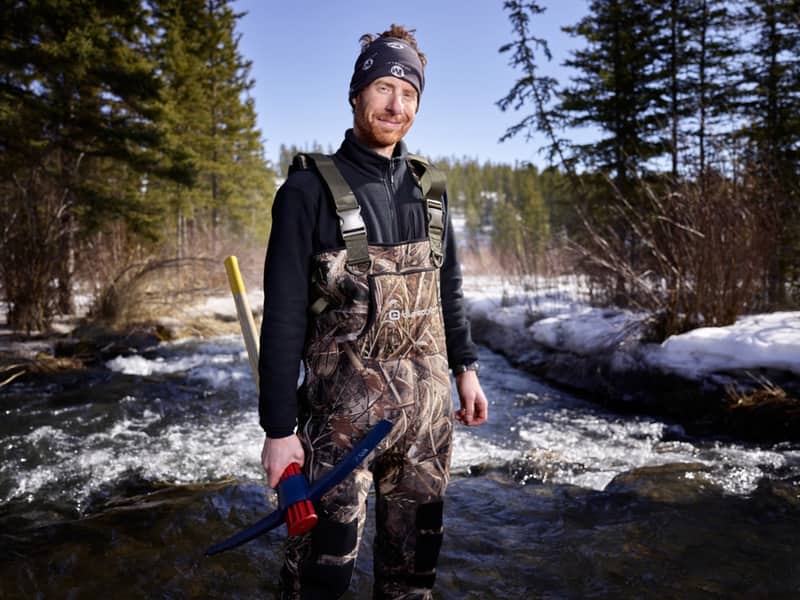
Dr. Benoit Turcotte
Senior Research Professional, Hydrology and Climate Change
YukonU Research Centre
Leading from the North
on the frontlines of climate change
YukonU students and researchers are working on the frontlines of climate change in one of the fastest warming climates on the planet.
Dr. Benoit Turcotte studies the impact of climate change on moving water and flooding. He has set up a living laboratory in McIntyre Creek, on Ayamdigut Campus, to increase our understanding of how the hydrology of this environment is evolving over time and how this might impact our community.
Dr. Turcotte is one of many experts at YukonU who creates opportunities for hands-on learning and student research positions to foster northern changemakers. “Students are taught equations and science, and then given hands-on and field experience to make them better scientists and competitive graduates in the workforce”, says Dr. Turcotte.
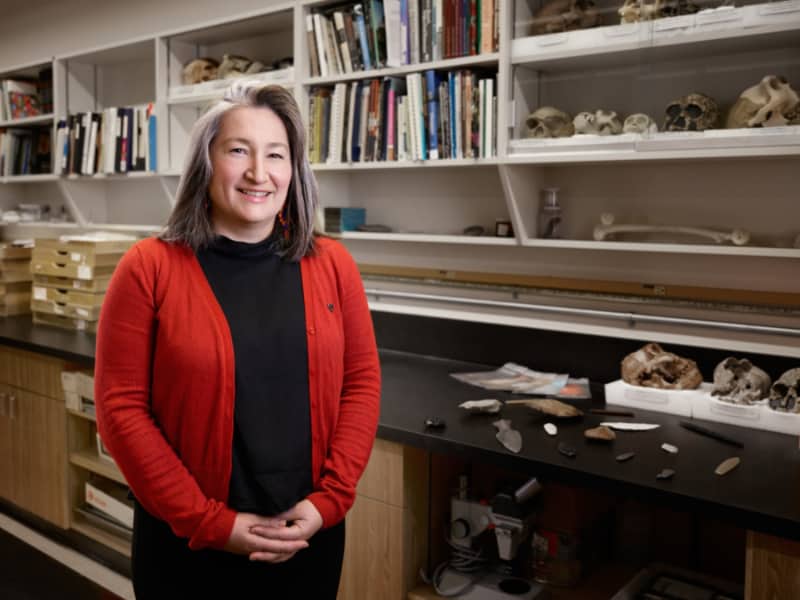
Dr. Victoria Castillo
Assistant Professor, Anthropology
School of Liberal Arts
Leading from the North
by cultivating social change and equity
Dr. Victoria Castillo provides students with opportunities to explore archaeology and gender through anthropology programming in and outside of the classroom.
Dr. Castillo focuses on the anthropology of art and gender through an archaeological lens and in the modern world. Her current research interests relate to the increase of women muralists in western Canada and the gendered space of street art.
“Murals, or wall paintings, have been found throughout the world from Palaeolithic to modern street art. Public spaces have typically been painted by male artists but there has been a change in the last decade. Women artists from Whitehorse to Vancouver are engaging in a visual dialogue, both decorative and commentative through public art,” says Dr. Castillo.
Dr. Castillo co-authored ECHO: Ethnographic, Cultural, and Historical Overview of Yukon’s First Peoples—an essential handbook offered as a resource for students and the Yukon community.
Follow YukonU Anthropology on Facebook.
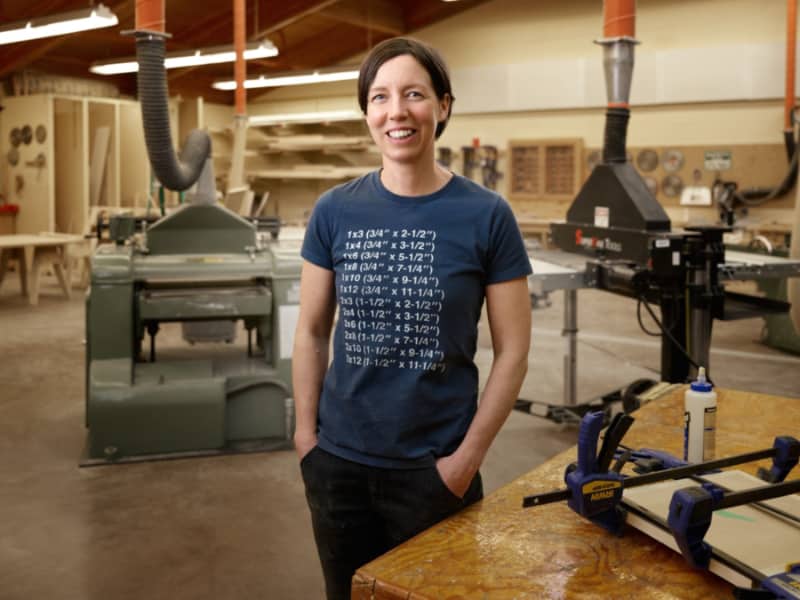
Meagan Christie
Instructor, Carpentry
School of Trades
Leading from the North
in trades accessibility
Education and training is not ‘one-size fits all’, according to Red Seal carpenter, Meagan Christie. Meeting the needs of under-represented groups in the trades will help close gender gaps and make carpentry training more accessible in the North.
Meagan is supporting growth and diversity in the trades through courses she has helped develop, including the Pre-Apprenticeship Carpentry program for women and the Housing Maintainer certificate for First Nations in the Yukon and northern BC.
“Housing maintenance is an important and challenging responsibility in remote communities, and takes a varied skill set. We offer flexible training so that northern communities can build the capacity they need to maintain safe and healthy homes.” says Christie.
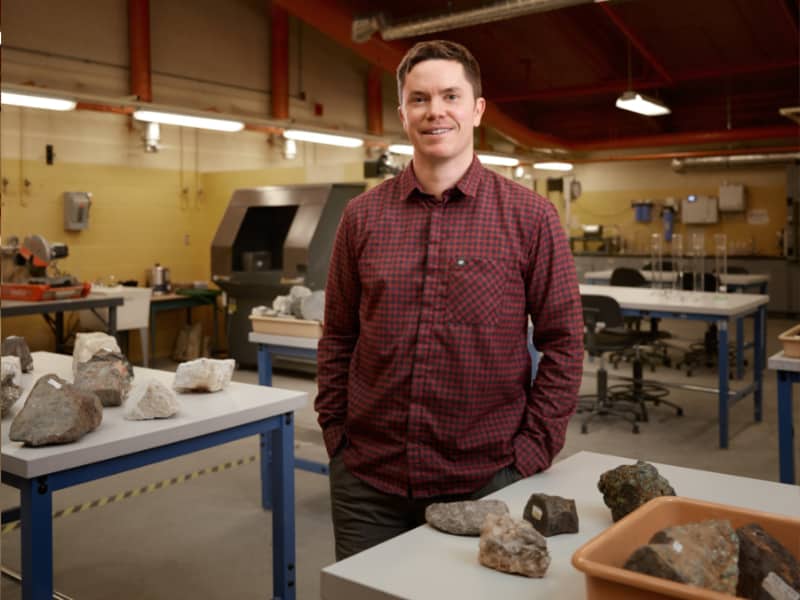
Dr. Joel Cubley
Associate Professor, Earth Sciences
Northern Innovation in Mining
Leading from the North
by learning in the field
The Yukon is a fascinating geologic laboratory—from mining and exploration sites to thawing permafrost and receding glaciers. Students frequently visit and explore these outdoor classrooms with Dr. Joel Cubley, as he believes this exposure is critical for students.
“It’s very different to say ‘I’ve learned about that’ vs. ‘I’ve done that’. Practical, hands-on experience will give our graduates a jumpstart as they become leaders in addressing important earth science challenges like sustainable resource development, water resource protection and combating climate change.” says Dr. Cubley.
Students also benefit from a close connection to geology-related industries. “We’re very lucky to be able to collaborate with industry on research, access active sites and host experts as guest speakers in the classroom.” says Dr. Cubley.
Follow YukonU Earth Sciences on Facebook .
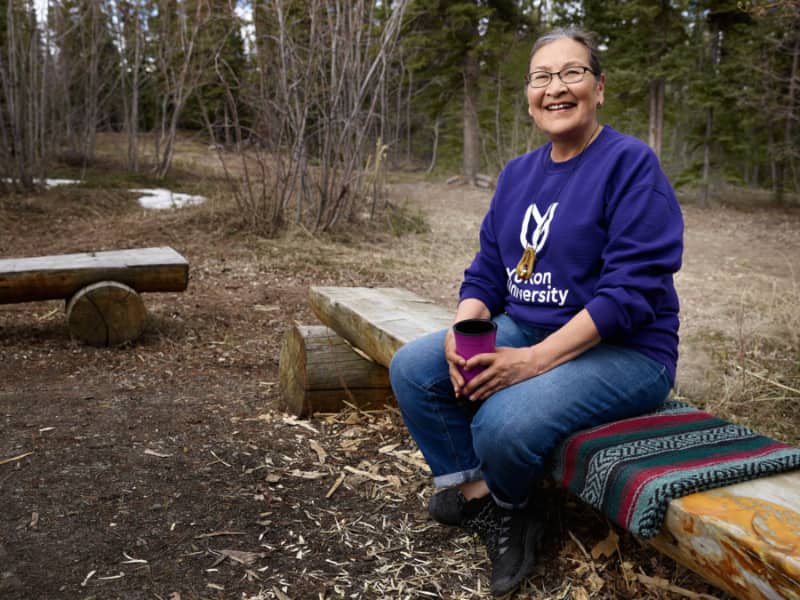
Elizabeth Moses
Elder on Campus
First Nation of Na-Cho Nyak Dun citizen
Leading from the North
by reconciling education
Elder on Campus, Elizabeth Moses connects with the YukonU community in classrooms and on the land. She shares her experience of growing up in the Yukon, supports conversations on Indian Residential Schools and helps to revitalize cultural traditions—like Bannock 101 at Roddy’s Camp and small sewing projects. “I feel like I’m bringing calmness, inclusiveness and a sense of belonging to the learning environment. It’s holistic learning—the students teach me too”, says Moses.
Elizabeth was born in the old village of Mayo Landing, to Tetlit Gwich'in Mary Moses and Northern Tutchone David Moses. “I honour the teachings and family values that I learned before I left home for residential school—like helping my mother by dancing on dried meat.”
Elizabeth does more than hang on to those memories, she is carrying those teachings and values forward—along with the Northern Tutchone language she uses in prayers—to the next generation.
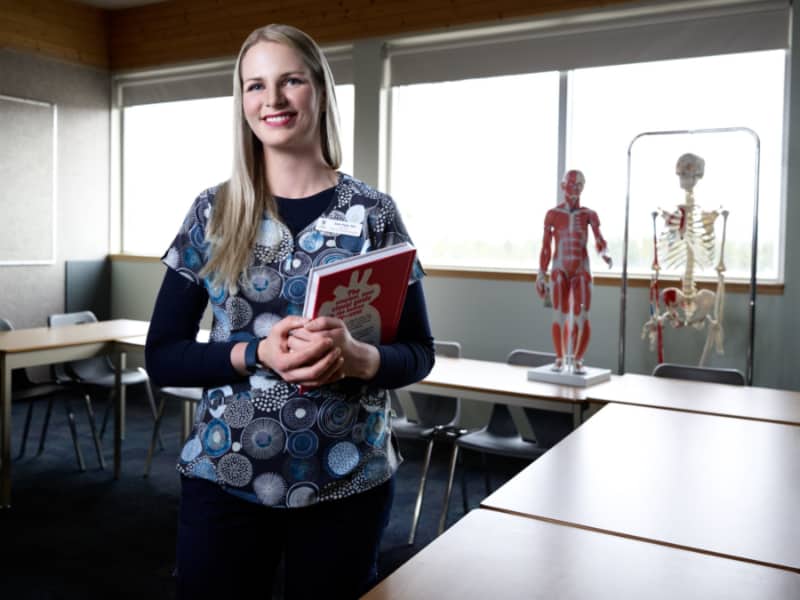
Samantha Piper
Instructor, Health Care Assistant
School of Health, Education and Human Services
Leading from the North
with culturally safe healthcare
In order to meet the needs of a community, health care students must first understand the cultural context, according to Samantha Piper, a registered nurse and instructor in the Health Care Assistant program.
“Our program offers a powerful learning experience”, says Piper. “Students are given the information and opportunity to reflect on the unique challenges impacting the health and well-being of residents across the territory. This helps to deepen their understanding, compassion and attitude towards culturally safe health care.”
Piper added land-based and experiential education to resiliency-building training in order to address the cultural safety training needs in health care. The design and implementation of this training was completed with an Elder on Campus in response to the reports of burnout across all sectors of health care.
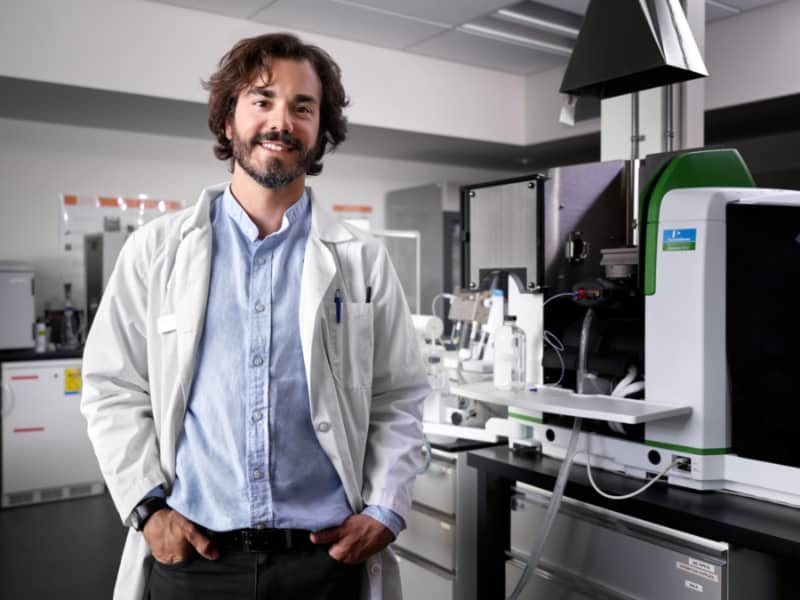
Dr. Guillaume Nielsen
Industrial Research Chair, Northern Mine Remediation
YukonU Research Centre
Leading from the North
in collaborative research practices
Mining is an important industry; in the Yukon, it drives the economy above tourism. “It's really important to do research to develop environmentally friendly mine remediation technologies that can work in the very specific climates in the North,” says Dr. Guillaume Nielsen.
Community engagement, especially with First Nations, has been key to Dr. Nielsen’s mine remediation research. In this way, his work has benefitted from both Indigenous Traditional Knowledge and Western science.
Dr. Nielsen and the students working alongside him at the YukonU Research Centre partner with the mining industry to highlight and find practical solutions for the environmental challenges it faces—including handling tailings from mine sites in cold climates, mine-impacted water treatments, waste management including tailings, and mine revegetation.
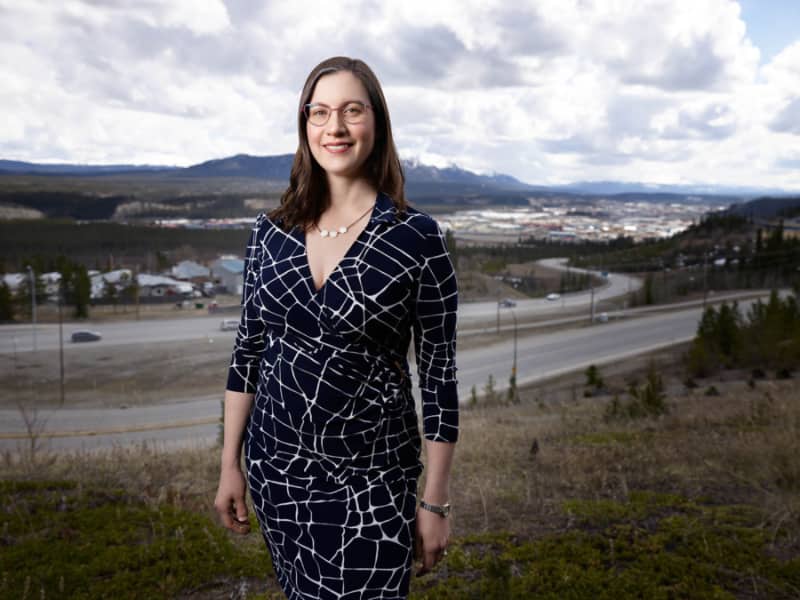
Dr. Sara McPhee-Knowles
Instructor, Bachelor of Business Administration
School of Business and Leadership
Leading from the North
with solutions for real-world needs
Dr. Sara McPhee-Knowles pairs students from Strategic Business Planning with northern non-profit organizations to help meet the needs of the community. The lack of resources to collect and analyze data is a barrier for many non-profit groups to make informed policy decisions and operational strategies.
“Getting students to work on a real problem is a win-win situation for everyone. Students develop practical skills while making tangible contributions to their community.” says Dr. McPhee-Knowles.
Fourth-year BBA students have used research and analysis to review the Whitehorse Food Bank hamper program, a four-day work week for the Yukon Status of Women Council, and calls to action for the Yukon Energy Food Security Network.
Dr. McPhee-Knowles also shares her research—from COVID-19 response to innovation policy —with other Canadian jurisdictions so that northern case studies can help inform policy decisions.
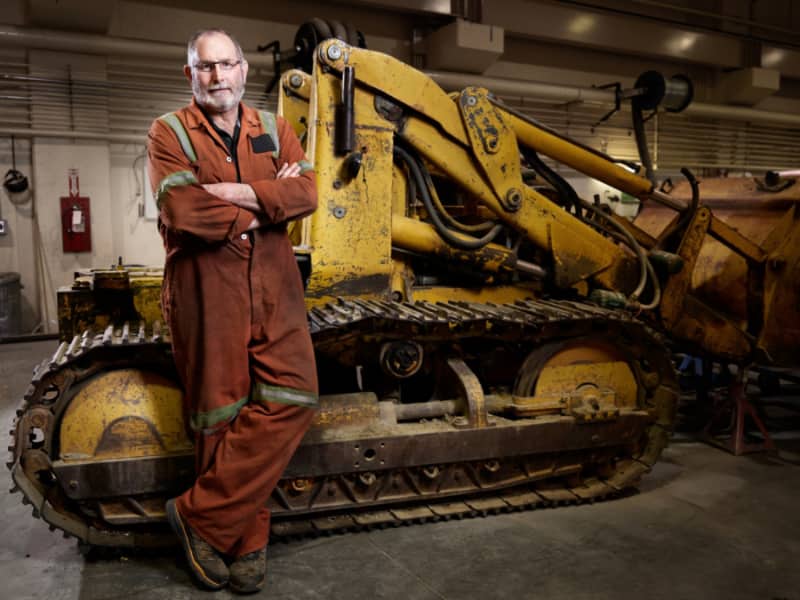
Doug McRae
Instructor, Heavy Equipment Technician
School of Trades, Technology and Mining
Leading from the North
by responding to emergent needs of the North
Tradespeople build and maintain the infrastructure of the world. Heavy equipment technicians (HET) are essential for fueling Yukon’s economy and keeping industry moving. “Trades people help meet the infrastructure demands and allow our society to prosper,” says Doug McRae, YukonU instructor and member of Skills Canada Yukon.
“There is an overwhelming need for heavy equipment technicians in the Yukon, in the North, and in most areas of the country… YukonU HET grads are working for trucking companies, construction, earth moving, road building, mines, factories and more—there’s an exciting future out there for them.”
McRae supported the first HET apprentice to complete all their technical training in the territory. Recently, he trained and mentored the first female HET in the Yukon.
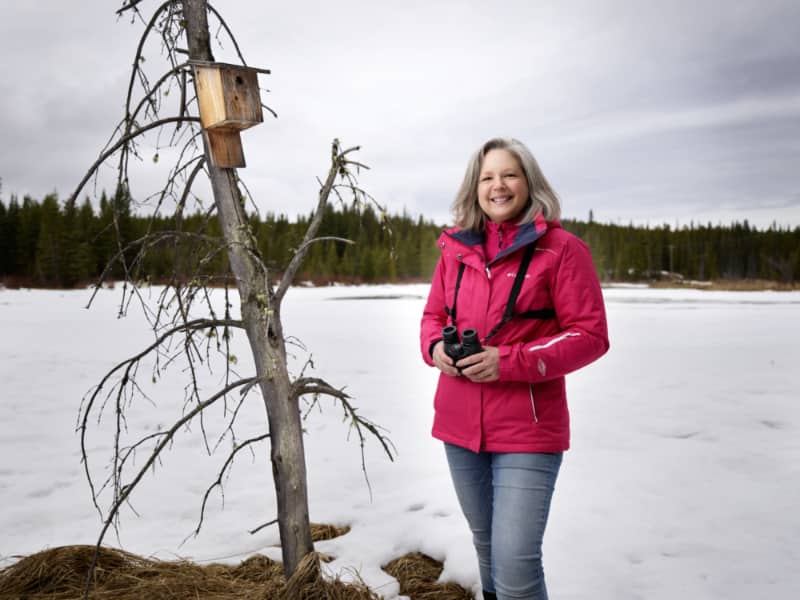
Dr. Katie Aitken
Assistant Professor
Coordinator, Northern Environmental and Conservation Sciences
School of Science
Leading from the North
by cultivating northern expertise
Dr. Katie Aitken is fostering the next generation of northern environmental and conservation science experts through her research and teaching at YukonU. Students study northern topics and are encouraged to research local issues with support from YukonU experts.
“It is important to grow our northern research community so they can enhance our ability to engage in informed decision-making, planning and conservation of our natural environment,” says Dr. Aitken. Fostering these in-situ experts is something she calls “growing our own crop”.
Dr. Aitken is a forest bird biologist with a focus on community ecology. She involves her students in the study of Yukon cavity-nesting birds and mammals and their important role in boreal forest ecosystems—including mediating insect outbreaks.
